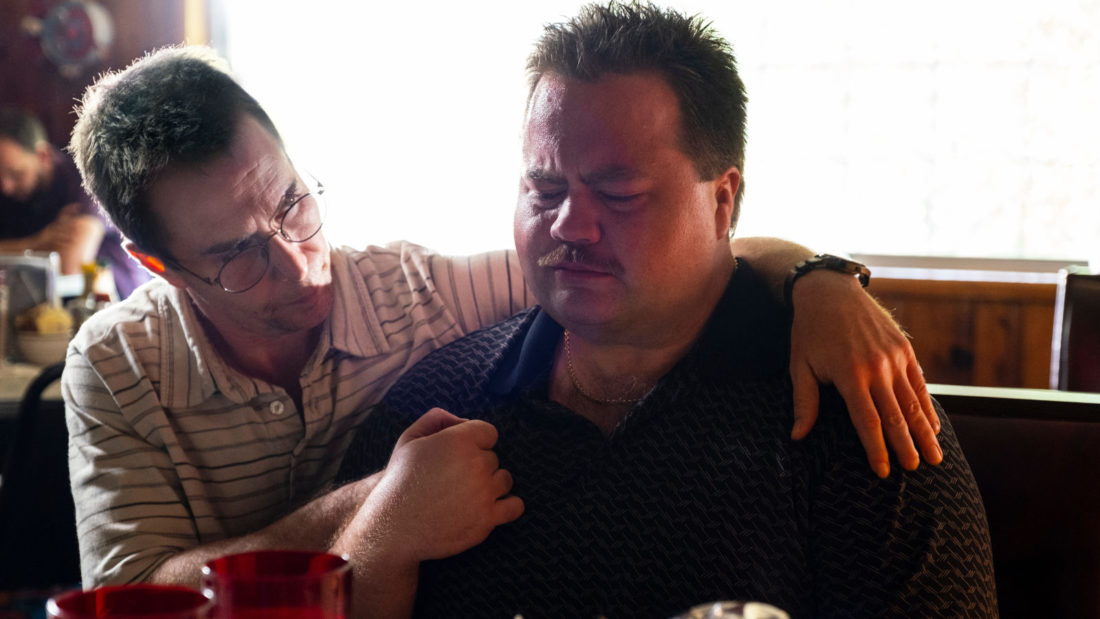A year after the patience-testing cinematic experience known as The Mule, Clint Eastwood returns to what he’s done best over the past 15 years — making films that don’t star himself.
Better than the manipulative American Sniper but not quite reaching the well-earned emotional highs of Sully, Richard Jewell again finds Eastwood reverentially profiling an American hero who, like Chesley Sullenberger, had to fight a lengthy battle to exonerate himself for performing admirably under extreme duress.
The focus here is the eponymous security guard who famously reported a suspicious backpack containing pipe bombs at Centennial Park during the 1996 Atlanta Summer Olympics. Instantly hailed as a hero for saving lives, Jewell became a villain just as quickly when the FBI and media identified him as the primary suspect for the terrorist attack.
Though he’s still arguably the most boring marquee director working today, Eastwood and his no-fuss style prove an apt fit for Jewell’s story, allowing the simmering tension of Billy Ray’s script and a handful of strong performances to stand out more clearly than they might have under more imaginative guidance.
Chief among those acting achievements is Paul Walter Hauser (who memorably played another tangential mid-’90s Olympic sports figure, Shawn Eckardt, in I, Tonya) as Jewell. No comedic punching bag this go-round, Hauser shows his impressive range as a flawed, honest-to-a-fault individual, determined to make a difference via law enforcement — a loyalty that gets him in trouble when the Feds come knocking.
Dedicated to keeping him out of trouble, Richard’s attorney, Watson Bryant (Sam Rockwell), and his mother, Bobi (Kathy Bates), form an appealing and important support system for our overwhelmed protagonist. The unified front is precisely what he needs to weather the dual attacks from FBI agent Shaw (Jon Hamm, superb yet again at playing an asshole) and former Citizen Times reporter Kathy Scruggs (Olivia Wilde), who trades sex with Shaw to get the scoop on Richard’s top-suspect status for the Atlanta Journal-Constitution.
In Richard Jewell’s presentation of its less admirable characters, it’s odd — and a bit unfair — that Hamm’s equally ethically shady Shaw is a composite, while Scruggs, who died in 2001 after stress from the Jewell case and its fallout reportedly ruined her health, is written up under her real name and unable to dispute whether the depiction is accurate. (Former colleagues and friends, including Xpress writer Tony Kiss, say Scruggs did no such thing.)
Further troubling is that by suggesting Scruggs would sleep with a source to get a scoop and subsequently smear the good name of an innocent man without due diligence, Eastwood and Ray viciously suggest that journalists are a force for evil — a dangerous message in the age of so-called “fake news,” where a wide swath of the public has grown to distrust reporters.
An easy out from a narrative angle, the film’s straw man approach for its antagonists may get viewers’ blood boiling in regard to the mistreatment of an innocent man but calls into question the validity of Richard Jewell’s portrayal of the other real-life people in its narrative.
Starts Dec. 13




Before you comment
The comments section is here to provide a platform for civil dialogue on the issues we face together as a local community. Xpress is committed to offering this platform for all voices, but when the tone of the discussion gets nasty or strays off topic, we believe many people choose not to participate. Xpress editors are determined to moderate comments to ensure a constructive interchange is maintained. All comments judged not to be in keeping with the spirit of civil discourse will be removed and repeat violators will be banned. See here for our terms of service. Thank you for being part of this effort to promote respectful discussion.